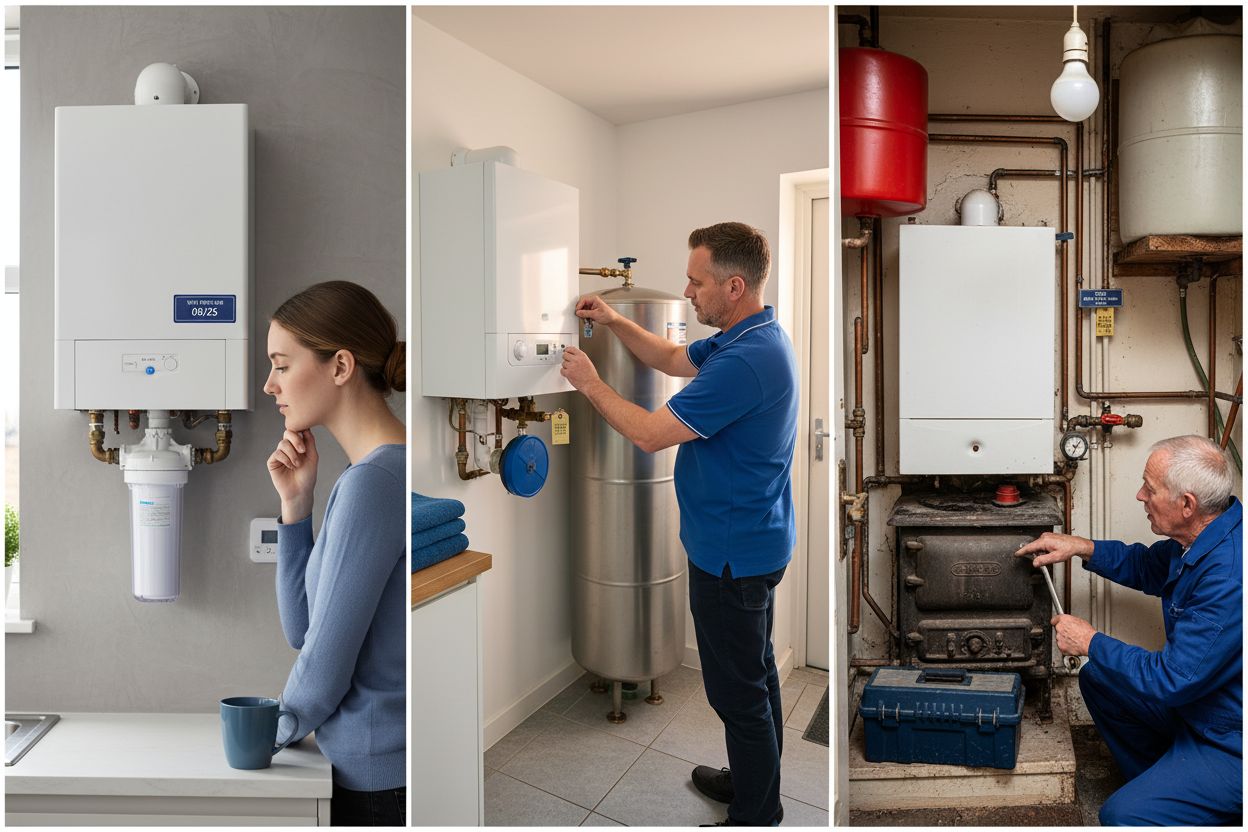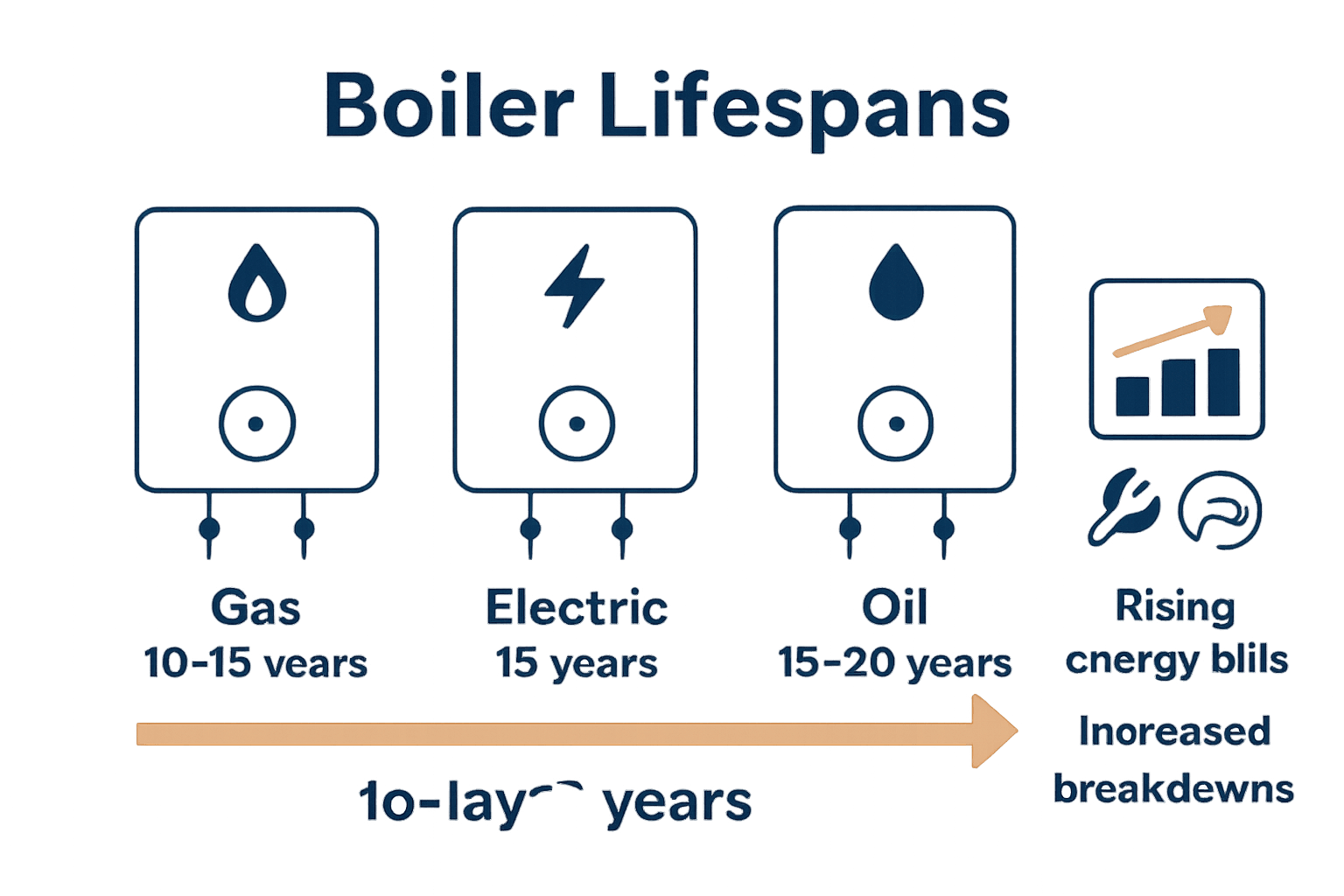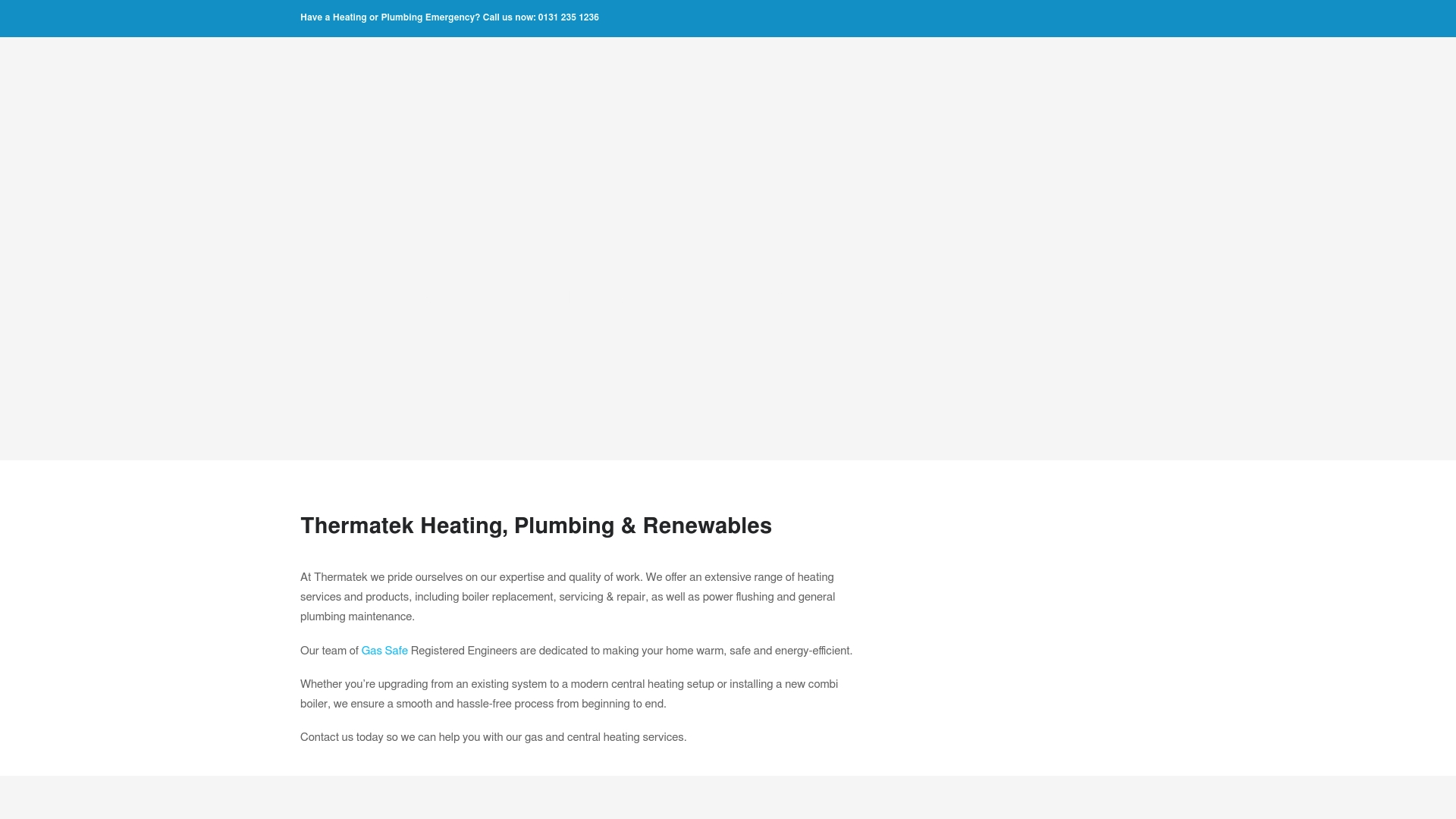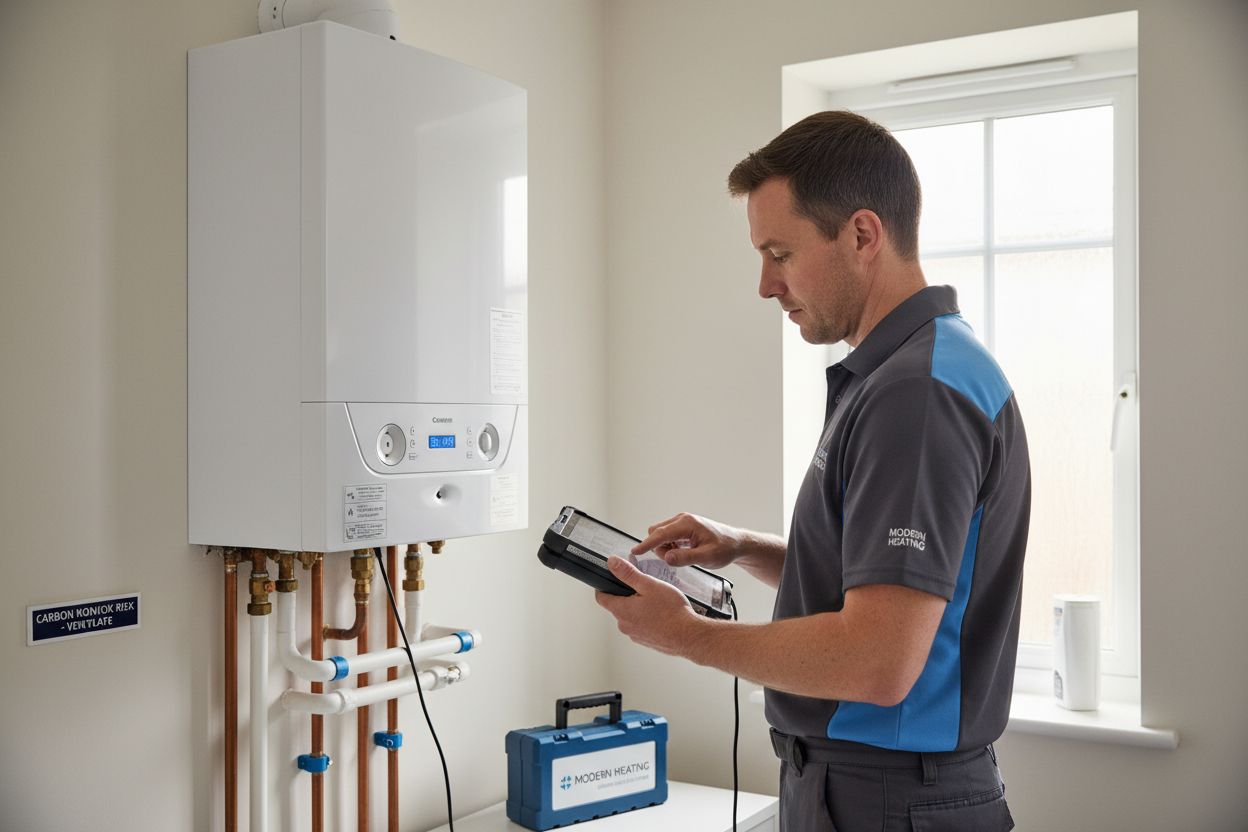How Long Do Boilers Last: Complete Guide for 2025
Did you know that a well-maintained boiler can last up to 30 years in some homes? For many households, heating is one of the largest regular expenses, so understanding how long your boiler will serve you matters. By looking at the real factors behind boiler lifespan, you can make smarter choices about maintenance and replacement to save money and stay comfortable throughout the year.
Key Takeaways
| Point | Details |
|---|---|
| Boiler Lifespan | Modern boilers typically last 10-15 years, but can exceed this with proper maintenance and care. |
| Maintenance Importance | Regular professional servicing and timely repairs significantly extend operational life and efficiency. |
| Type Variance | Different boiler types have distinct lifespans: gas (10-15 years), electric (15-25 years), and oil (20-30 years). |
| Replacement Indicators | Warning signs include rising energy bills, frequent breakdowns, and inconsistent heating, suggesting it may be time for replacement. |
Table of Contents
- Boiler Lifespan Explained: Key Fundamentals
- Main Types of Boilers and Longevity Differences
- Major Factors Impacting Boiler Lifespan
- Warning Signs Your Boiler Needs Replacement
- Maintaining Boilers for Maximum Service Life
Boiler Lifespan Explained: Key Fundamentals
Understanding how long your boiler will last isn’t just about numbers—it’s about smart maintenance and strategic planning. Discover how boiler systems work to better appreciate their longevity and performance. According to leading heating research, boiler lifespan varies significantly based on several critical factors.
Most modern boilers have an average operational life ranging from 10 to 15 years, though this can fluctuate dramatically depending on maintenance quality, usage patterns, and initial system design. Different boiler types demonstrate remarkable variance in durability:
- Gas boilers: Typically last 10-15 years
- Electric boilers: Extended lifespan of 15-25 years
- Oil boilers: Potentially lasting 20-30 years
The key to maximising your boiler’s longevity lies in proactive maintenance. Regular professional servicing, annual inspections, and addressing minor issues promptly can significantly extend your system’s operational life. Think of your boiler like a high-performance vehicle—consistent care prevents premature breakdown and ensures optimal performance throughout its lifecycle. Professional engineers recommend annual check-ups to identify potential problems before they escalate, helping you avoid costly emergency replacements and unexpected heating interruptions.
Main Types of Boilers and Longevity Differences
Boiler types significantly influence heating system performance and longevity. Learn more about heating system differences to make informed decisions about your home’s heating infrastructure. According to detailed UK research, different boiler configurations offer unique advantages and operational lifespans.
The primary boiler categories demonstrate distinct characteristics:
- Combi Boilers: 10-15 years lifespan
- System Boilers: 10-15 years operational duration
- Conventional Boilers: 12-20 years potential service life
- Electric Boilers: 10-15 years typical performance period
Conventional boilers with separate tanks present an interesting scenario, potentially extending beyond 20 years—though efficiency declines with age. This variance highlights why professional assessment matters. The boiler’s environment, maintenance frequency, water quality, and installation precision dramatically impact its operational longevity. Homeowners should prioritise regular servicing, invest in quality initial installations, and monitor system performance to maximise their heating infrastructure’s potential lifespan.
Understanding these nuanced differences empowers you to make strategic decisions about replacement, maintenance, and investment in your home’s heating system. Each boiler type offers unique benefits, and recognising their individual characteristics helps you select the most appropriate solution for your specific residential requirements.

Here’s a summary comparing the main boiler types and their typical lifespans:
| Boiler Type | Typical Lifespan | Key Features |
|---|---|---|
| Combi Boiler | 10-15 years | Compact Instant hot water |
| System Boiler | 10-15 years | Separate cylinder Good for larger homes |
| Conventional Boiler | 12-20 years | Separate tank Older properties |
| Electric Boiler | 10-15 years | Efficient No gas required |
Major Factors Impacting Boiler Lifespan
Boiler longevity isn’t just about luck—it’s a direct result of multiple interconnected factors. Learn more about boiler heating systems to understand the complex dynamics affecting your home’s heating performance. System maintenance plays a critical role in determining how long your boiler will reliably serve your household.
Several key elements dramatically influence boiler performance and lifespan:
- Water Quality: Hard water areas cause faster mineral buildup
- Installation Quality: Professional fitting prevents early system failures
- Usage Patterns: Consistent, moderate heating extends boiler life
- Maintenance Frequency: Regular servicing prevents catastrophic breakdowns
- Environmental Conditions: Humidity, temperature, and dust impact component wear
According to home heating experts, sludge, rust, and limescale buildup represent significant threats to boiler efficiency. Critically, research recommends power-flushing every 5-6 years (sometimes up to 9 years) to remove internal debris, protect system warranties, and extend overall operational life. This preventative measure is especially crucial in regions with hard water, where mineral deposits can rapidly degrade heating components.
Ultimately, treating your boiler like a precision instrument—with regular professional care, thoughtful usage, and proactive maintenance—transforms it from a simple appliance into a long-lasting, reliable home heating solution. The small investments you make in systematic care can translate into years of additional service and substantial long-term savings.
Warning Signs Your Boiler Needs Replacement
Recognising when your boiler is approaching its end of life can save you from unexpected breakdowns and costly emergency replacements. Check out our comprehensive guide on boiler replacement to understand the full process. According to heating system research, performance degradation becomes increasingly apparent as boilers age, with significant implications for home comfort and energy efficiency.
Key warning signs that indicate your boiler might need replacement include:
- Increasing Energy Bills: Unexplained spike in heating costs
- Frequent Repairs: More frequent callouts and component replacements
- Unusual Noises: Banging, whistling, or persistent rumbling sounds
- Inconsistent Heating: Uneven warmth or struggling to reach desired temperatures
- Visible Corrosion: Rust, leaks, or physical damage to the system
Research suggests that by the 10th year, boiler performance can drop by around 30%. If your boiler is between 10-15 years old and experiencing frequent breakdowns, rising energy bills, or strange operational sounds, replacing it with a more energy-efficient model is often the most economical choice.
 Modern boilers offer significantly improved efficiency, potentially reducing your energy consumption and providing more reliable heating.
Modern boilers offer significantly improved efficiency, potentially reducing your energy consumption and providing more reliable heating.
Ultimately, proactive replacement prevents unexpected system failures and can lead to substantial long-term savings. Consulting with a professional heating engineer can help you make an informed decision about whether repair or replacement is the most cost-effective solution for your specific heating system.
Maintaining Boilers for Maximum Service Life
Boiler maintenance represents your most powerful strategy for extending system longevity and protecting your heating investment. Learn about professional boiler servicing requirements to ensure optimal performance. According to leading heating technology experts, correct care can dramatically extend your boiler’s operational life well beyond its standard expected duration.
Key maintenance strategies that preserve boiler health include:
- Annual Professional Servicing: Maintains manufacturer warranty
- Corrosion Prevention: Using quality chemical inhibitors
- Debris Management: Installing magnetic filters to trap sludge
- System Cleaning: Periodic power-flushing to remove internal buildup
- Quality Installation: Choosing reputable professionals for initial setup
Research confirms that well-maintained boilers from reliable manufacturers like Vaillant and Worcester Bosch can consistently reach or exceed 15 years of service. The critical factors involve not just occasional maintenance, but systematic, proactive care. Regular professional inspections help identify potential issues before they escalate, allowing for targeted interventions that prevent catastrophic failures and maintain system efficiency.
Think of boiler maintenance like regular health check-ups—small, consistent investments in professional care can prevent expensive emergency replacements and ensure your heating system operates at peak performance throughout its lifecycle. By implementing these strategic maintenance practices, homeowners can transform their boilers from temporary appliances into long-term, reliable heating solutions.
Ready to Secure a Reliable Heating Future for Your Home?
Struggling with the uncertainty of your boiler’s remaining life and rising concerns about unexpected breakdowns or growing energy costs? The article highlighted how age, maintenance and warning signs like strange noises or climbing bills can all point to a boiler nearing its end. At Thermatek, we understand these challenges and specialise in expert solutions to extend boiler lifespan and boost efficiency. Our Gas Safe Registered engineers offer thorough boiler servicing options and fast, hassle-free repairs, supporting you in every step from proactive maintenance to full boiler replacement.

If your boiler is showing signs of ageing or you simply want peace of mind for the colder months ahead, act today for a safer and more cost-effective home. Visit Thermatek Heating to request a free quote or schedule a visit with our trusted local experts. Do not wait for an emergency – let us help you protect your comfort and investment before problems escalate.
Frequently Asked Questions
How long do different types of boilers typically last?
Most modern boilers last between 10 to 15 years. However, gas boilers typically last 10-15 years, electric boilers can last 15-25 years, and oil boilers may last 20-30 years.
What maintenance is essential for prolonging a boiler’s lifespan?
Regular professional servicing, annual inspections, and addressing minor issues promptly are crucial for extending your boiler’s lifespan. It’s also recommended to perform power-flushing every 5-6 years to remove internal debris and protect the system.
What are the warning signs that indicate my boiler needs replacement?
Key warning signs include increasing energy bills, frequent repairs, unusual noises, inconsistent heating, and visible corrosion. If your boiler is around 10-15 years old and showing these signs, it may be time to consider a replacement.
How does water quality impact boiler longevity?
Poor water quality, especially in hard water areas, can lead to faster mineral buildup inside the boiler. This buildup can significantly decrease efficiency and shorten the boiler’s lifespan, highlighting the importance of maintaining good water quality and regular maintenance.

